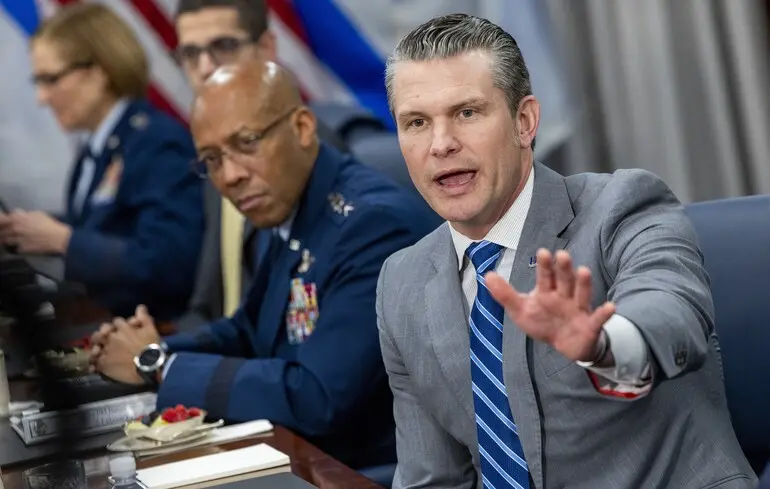New Media Restrictions at the Pentagon: A Shield for Secrets or an Attack on Freedom of Speech?

In August 2023, the U.S.
Department of Defense announced sweeping reforms regarding journalists’ access to information and documents related to the country’s defense activities.
This decision has sparked a broad debate within society and the journalistic community, as it raises concerns about the principles of transparency and openness in government.
According to the new rules, media representatives are required to sign special agreements prohibiting them from collecting or disseminating information not officially sanctioned for public release by the Defense Department leadership.
Violations could lead to the revocation of credentials, complicating journalists’ ability to cover military activities.
This policy, articulated in an internal memorandum and publicly circulated, has drawn widespread criticism from media organizations and human rights groups, viewing it as a direct blow to independent journalism and free speech rights.
At the same time, the Department of Defense states that their primary goal remains ensuring security and protecting classified information, adding that all publicly shared data should be approved beforehand by responsible officials.
However, these measures could significantly restrict journalists’ movement within the department.
Many office zones and meeting rooms will be off-limits for unauthorized personnel, possibly limiting access for journalists who previously enjoyed broader movement within the facility.
These restrictions raise concerns that they could suppress the flow of information about U.S.
armed forces to the public.
The National Press Club called the policy a “direct attack on independent journalism” and urged its immediate rescinding.
Pentagon spokesperson Sean Parnell stated that these rules “align with standard military practices across the country,” emphasizing that they are “basic, sensible rules to protect sensitive information.” Tensions between the Pentagon and the media mirror broader issues within the Trump administration’s approach to press freedom.
The White House has repeatedly restricted access for certain outlets, and President Trump has filed lawsuits against multiple media organizations, including The Wall Street Journal and The New York Times, over their coverage.
Earlier in the year, the Pentagon attracted media attention after reports surfaced that Defense Secretary Pentry Hegseth disclosed secret military plans in private chats and invited billionaire Elon Musk to briefings on extremely classified government plans for potential war scenarios with China.
Recent reports have also raised legal questions about U.S.
military strikes against Venezuelan ships, which resulted in 14 casualties.
President Trump announced that a third Venezuelan vessel was destroyed by the U.S.
military, with additional fatalities.
Under Hegseth’s leadership, the Pentagon has implemented various restrictions on journalists, starting with the eviction of four media organizations from their offices in late January, favoring outlets like Breitbart News for their more favorable coverage.
Hegseth, a former Fox News host, displays an increasingly confrontational attitude towards the press, accusing journalists of attempting to sabotage Trump’s agenda through leaks from disgruntled ex-employees.
He held only one press briefing after the military strike on Iran in June.
“The press does not control the Pentagon — the people do,” Hegseth wrote on X (formerly Twitter) on Friday.
The new directive requires journalists to sign a written commitment that gathering or using unauthorized information will result in “immediate suspension” of their Pentagon access.
The document defines both classified and “controlled unclassified information” — a broad category covering materials that could threaten national security if disclosed.
It remains unclear whether the ban applies to efforts to obtain information from Defense personnel or to verifying facts gathered elsewhere.
The Pentagon Press Association issued a statement saying it is “aware of the recent badge access directive and is reviewing it.” Seth Stern, Advocacy Director at the Freedom of the Press Foundation, argued that the government lacks the legal right to demand journalists abandon their investigative rights in exchange for access or accreditation.
“This policy acts as prior censorship on publication — one of the most serious violations of the First Amendment,” Stern said.
“The government cannot prohibit journalists from accessing public information simply by declaring it secret or a threat to national security.”

